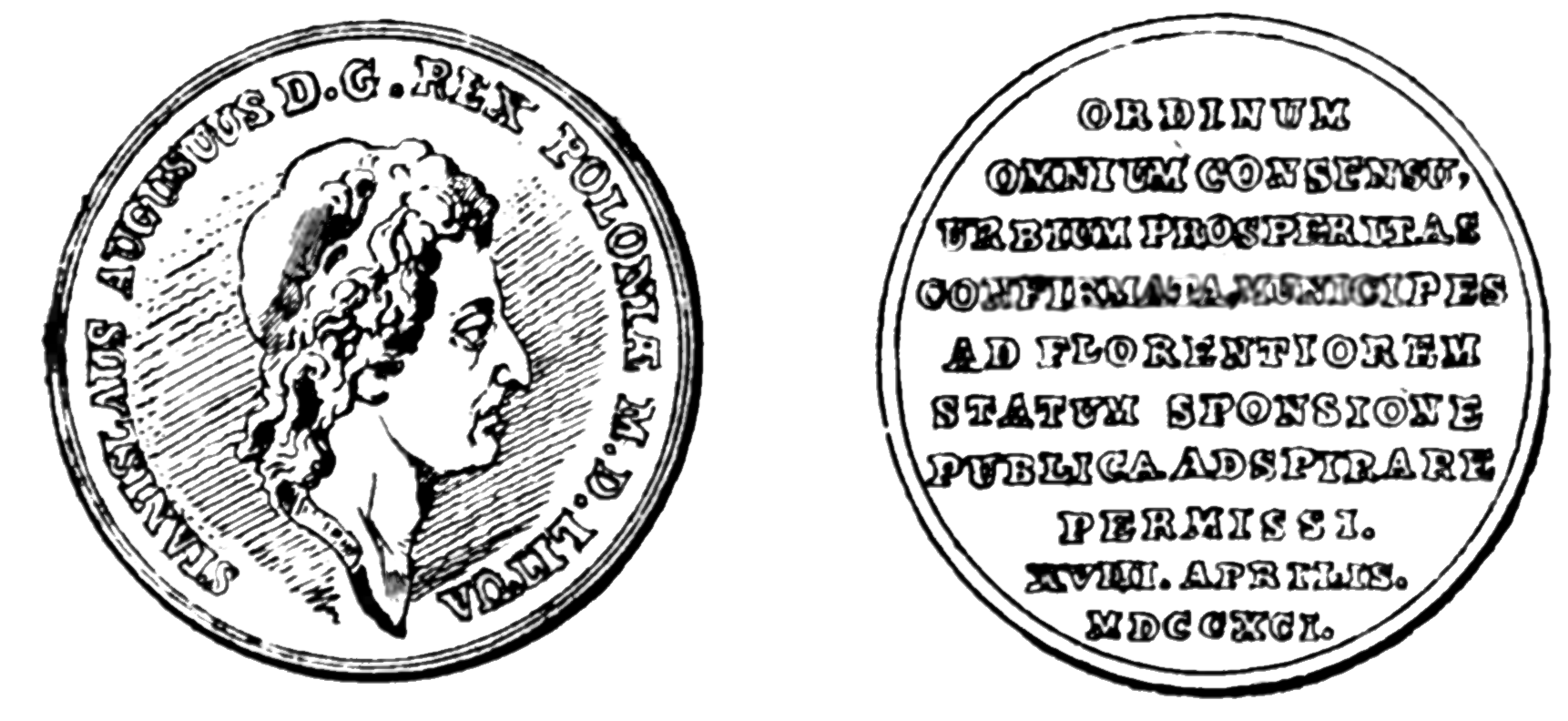Free Royal Cities Act on:
[Wikipedia]
[Google]
[Amazon]
 The Free Royal Cities Act (full Polish title: ''Miasta Nasze Królewskie wolne w państwach Rzeczypospolitej'';
The Free Royal Cities Act (full Polish title: ''Miasta Nasze Królewskie wolne w państwach Rzeczypospolitej'';
English
English usually refers to:
* English language
* English people
English may also refer to:
Peoples, culture, and language
* ''English'', an adjective for something of, from, or related to England
** English national ...
: "Our Free Royal Cities
The term royal city denotes a privilege that some cities in Bohemia and Moravia enjoyed during the Middle Ages. It meant the city was an inalienable part of the royal estate; the king could not sell or pledge the city. At the beginning of the 16th ...
in the States of the Commonwealth
A commonwealth is a traditional English term for a political community founded for the common good. Historically, it has been synonymous with "republic". The noun "commonwealth", meaning "public welfare, general good or advantage", dates from the ...
", or the Law on the Cities, ''Prawo o miastach'') was an act adopted by the Four-Year Sejm (1788–92) of the Polish–Lithuanian Commonwealth
The Polish–Lithuanian Commonwealth, formally known as the Kingdom of Poland and the Grand Duchy of Lithuania, and, after 1791, as the Commonwealth of Poland, was a bi-confederal state, sometimes called a federation, of Crown of the Kingdom of ...
on April 18, 1791, in the run-up to the adoption of the Constitution of May 3, 1791. The Act was subsequently incorporated ''in extenso
IN, In or in may refer to:
Places
* India (country code IN)
* Indiana, United States (postal code IN)
* Ingolstadt, Germany (license plate code IN)
* In, Russia, a town in the Jewish Autonomous Oblast
Businesses and organizations
* Independ ...
'' into the Constitution by reference in its Article III.
The Act granted to the Commonwealth's townspeople
The bourgeoisie ( , ) is a social class, equivalent to the middle or upper middle class. They are distinguished from, and traditionally contrasted with, the proletariat by their affluence, and their great cultural and financial capital. T ...
of the royal cities
The term royal city denotes a privilege that some cities in Bohemia and Moravia enjoyed during the Middle Ages. It meant the city was an inalienable part of the royal estate; the king could not sell or pledge the city. At the beginning of the 16th ...
personal security, the right to acquire landed property, and eligibility for military officers' commissions, public office
Public Administration (a form of governance) or Public Policy and Administration (an academic discipline) is the implementation of public policy, administration of government establishment ( public governance), management of non-profit estab ...
s; it did not gave them the rights of ''szlachta
The ''szlachta'' (Polish: endonym, Lithuanian: šlėkta) were the noble estate of the realm in the Kingdom of Poland, the Grand Duchy of Lithuania, and the Polish–Lithuanian Commonwealth who, as a class, had the dominating position in ...
'' (nobles), but gave the right for ennoblement
Ennoblement is the conferring of nobility—the induction of an individual into the noble class. Currently only a few kingdoms still grant nobility to people; among them Spain, the United Kingdom, Belgium and the Vatican. Depending on time and reg ...
; it provided townspeople right for representation in ''Sejm
The Sejm (English: , Polish: ), officially known as the Sejm of the Republic of Poland ( Polish: ''Sejm Rzeczypospolitej Polskiej''), is the lower house of the bicameral parliament of Poland.
The Sejm has been the highest governing body of ...
'' as advisers in the cities' affairs.The Third of May ConstitutionSee also
* Black Procession * Jan DekertNotes
References
* Joseph Kasparek, ''The Constitutions of Poland and of the United States: Kinships and Genealogy'', Miami, American Institute of Polish Culture, 1980, pp. 31–33. 1791 in law Legal history of Poland Great Sejm {{Lithuania-hist-stub